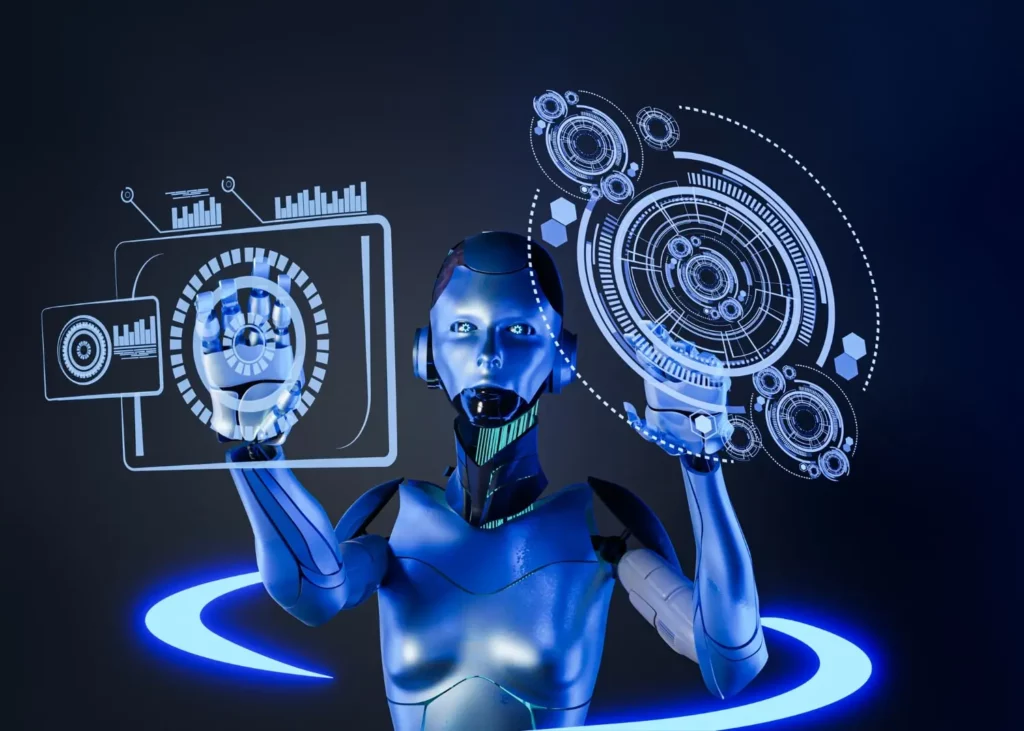Artificial intelligence (AI) is transforming various industries, and the automotive industry is not an exception. AI technology is increasingly being used in developing various parts and systems in vehicles, ranging from autonomous driving to predictive maintenance. The impact of AI in the automotive industry cannot be overlooked as its influence has been and will continue to be felt in the industry for many years to come.
AI in Autonomous Driving
AI plays a significant role in autonomous driving, also known as self-driving cars. Self-driving cars use AI technology and deep learning algorithms to sense their surroundings in real-time to navigate without human intervention. Therefore, an AI-enabled autonomous car can detect road signs, traffic signals, and other traffic participants, such as pedestrians, bicycles, and other vehicles, to make informed decisions and avoid traffic accidents.
Advantages of Autonomous Driving
- Reducing accidents and fatalities on the roads due to human error
- Improving fuel efficiency and reducing carbon emissions
- Parking and traffic management, which will lead to less congestion on the roads
- Increasing the speed of car travel by eliminating traffic jam.
Challenges of Autonomous Driving
- Public skepticism about the safety of self-driving cars
- Legal issues associated with accidents involving self-driving cars
- The high cost of implementing autonomous driving technology in cars.
AI in Predictive Maintenance
AI estimates when a car is due for maintenance by analyzing data from the car’s sensors and algorithms that track engine performance. For example, with AI technology in a car’s system, the car can signal when it needs an oil change or other maintenance work. Predictive maintenance helps to reduce the number of breakdowns and prolong the life of cars.
Advantages of Predictive Maintenance
- Reducing costs by avoiding repairs and preventing downtime
- Improving safety, reliability, and quality control
- Enhancing customer satisfaction because car owners won’t have to worry about maintenance problems.
Challenges of Predictive Maintenance
- The high cost of implementing AI-driven predictive maintenance technology in cars
- Resistance from traditional manufacturers who are reluctant to innovate.
AI in Marketing and Sales
AI-driven systems can analyze customer data in real-time to help develop better marketing strategies and make more informed recommendations to customers. For instance, when a customer visits a car dealership, AI technology can provide personalized offers based on the customer’s needs and preferences.
Advantages of AI in Marketing and Sales
- Enhancing personalized interactions that lead to better customer satisfaction and customer retention
- Minimizing human errors and increasing efficiency in the sales process.
Challenges of AI in Marketing and Sales
- Possible displacement of salespeople and customer service representatives
- Difficulties with scaling and integrating AI technology with existing systems.
AI in Supply Chain Management
AI-driven technology can help automotive companies manage their supply chain more efficiently. For example, AI can predict when a particular part will be needed and ensure that there is enough stock to meet demand. Additionally, AI technology can also analyze data on suppliers to evaluate their performance, reliability, and pricing.
Advantages of AI in Supply Chain Management
- Reducing the risk of supply chain disruptions by predicting potential shortages
- Streamlining operations, reducing inventory costs, and improving supply chain efficiency
- Increasing visibility of the supply chain and improving traceability.
Challenges of AI in Supply Chain Management
- Challenges of integrating AI technology into existing supply chain systems
- The potential risk of cybersecurity breaches.
Conclusion
In conclusion, AI is transforming the automotive industry by improving safety, quality, and efficiency across the board. However, the full potential of AI in the automotive industry can only be realized if stakeholders address the challenges and resistances associated with integrating AI technology into their operations. As technology advances, AI will continue to be a driving force in the automotive industry.










